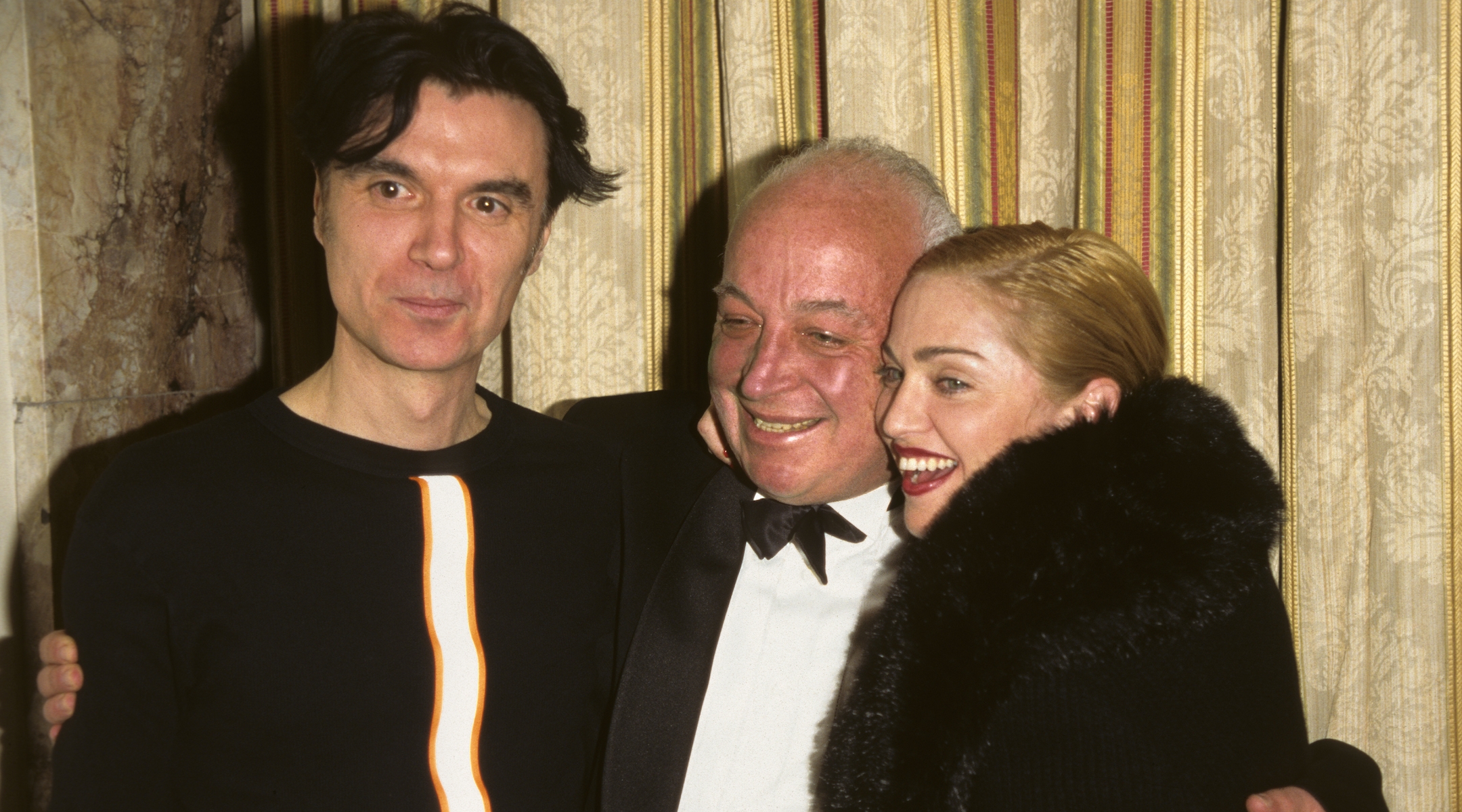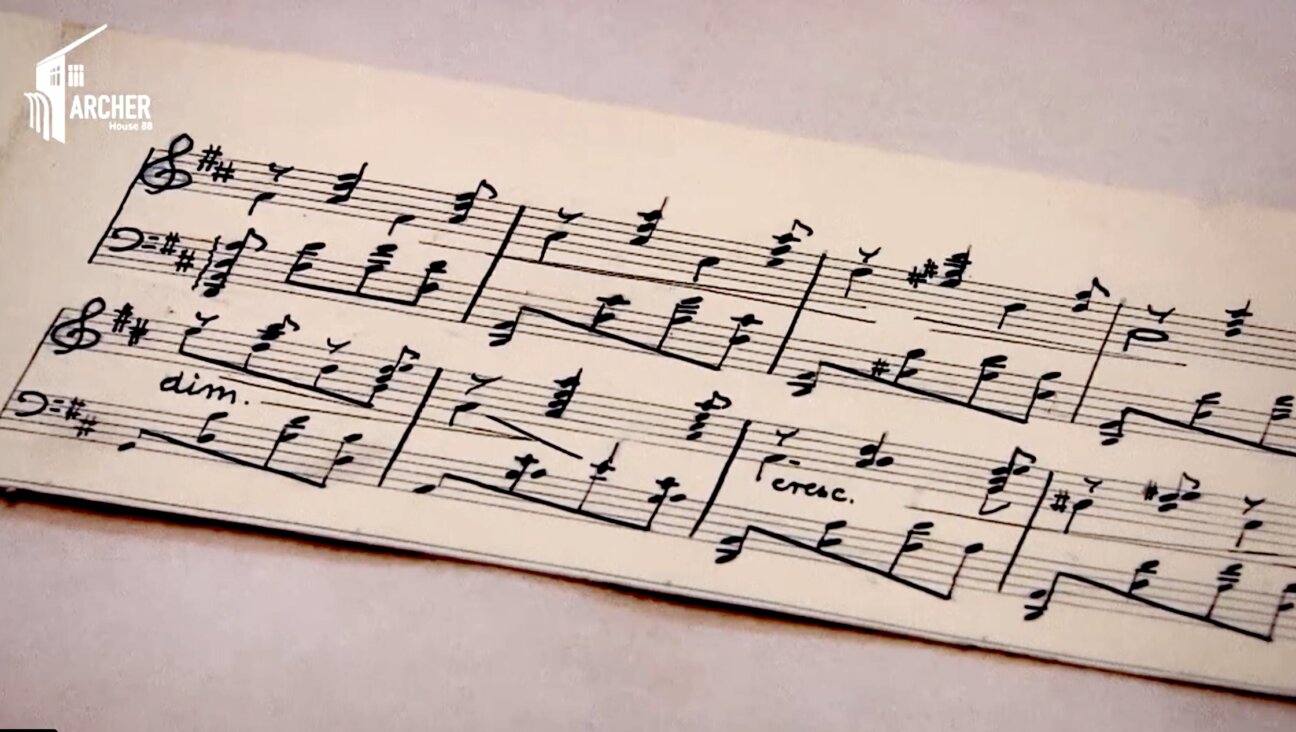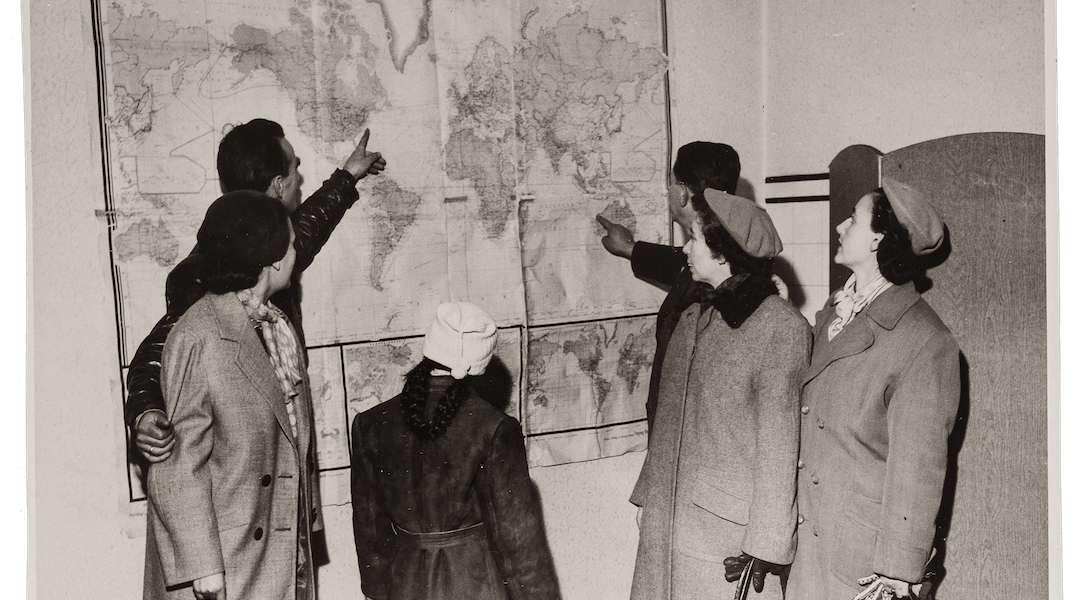Seymour Stein, Jewish music mogul who discovered Madonna and The Ramones, dies at 80
The founder of Sire Records frequently referenced his Jewish roots, which had a deep impact on his career and his personal life

Seymour Stein with David Byrne and Madonna in 1996. (KMazur/WireImage/Getty Images)
(JTA) — Seymour Stein, one of the most influential music executives of the 20th century, who frequently throughout his career referred to his Jewish Brooklynite roots, died at 80 on Sunday at his home in Los Angeles.
The cause was an unspecified form of cancer, according to reports.
Stein, born Seymour Steinbigle in 1942 and raised near Bensonhurst, Brooklyn, signed artists to his Sire record label ranging from pop superstars like Madonna to punk rockers like The Ramones to New Wave pioneers like the Talking Heads. He also helped found the Rock & Roll Hall of Fame in the early 1980s and was inducted with a lifetime achievement award in 2005.
As he details in his 2018 autobiography, Stein’s father became closer to Orthodox Judaism in his 30s and 40s, regularly bringing his family to a nearby synagogue, where he was a vice president. Stein wrote that his father stopped by the synagogue at 6 a.m. before working in Manhattan’s Garment District and then again after work on his way home every day.
He described the Jews of 1940s Brooklyn in detail in “Siren Song: My Life in Music”:
We had every flavor of Ashkenazim — Russian, Polish, Baltic, Romanian, Austrian, Hungarian, German, and Czech Jews, including about fifty thousand survivors from the concentration camps. We had lost tribes you didn’t even know existed — Syrian, Iraqi, Persian, Yemeni, Ethiopian, even some Sephardic Jews whose family trees had curled through Spain, North Africa, the Middle East, and South America…. [E]ach Jewish community was distinct, often with its own native food and language.
In 1966, Stein — who shortened his last name on advice from an early mentor, the Jewish executive Syd Nathan — co-founded Sire Records, which would go on to sign and promote artists from a range of burgeoning genres in the 1970s, ’80s and ’90s: British indie rockers like The Smiths and The Cure, electronic innovator Aphex Twin, the rapper Ice-T.
“He knows all the lyrics to every song you’ve ever heard,” said Chrissie Hynde, the famed leader of The Pretenders, another Sire band.
Along the way, Stein wrote and mentioned in interviews how he found camaraderie with other Jewish executives and stars, after having grown up in an era when Jews were implicitly banned from some professions in the United States but found a haven in the entertainment industry. In his autobiography, for instance, he calls Lou Reed and New Wave electro-rocker Alan Vega fellow Brooklyn Jews.
“It’s amazing now that so many doctors and lawyers are Jewish,” he said in a 2013 interview with Tablet magazine. “Jews in America weren’t allowed in those professions 120 years ago. Music is something Jews were good at and they could do. All immigrants into America tried their hand at show-business.”
Stein signed Madonna from his hospital bed, where he was recovering from an open-heart surgery in 1982. She would release three top-of-the-charts albums with Sire before creating her own imprint in 1992.
In 1975, his wife, Linda, encouraged him to look into The Ramones, a group of scrappy punks in ripped jeans from Queens (two of whom were Jewish). She would co-manage the band for a time before becoming a real estate agent.
Stein, who later came out as gay, wrote that “the roles were a little confused” in his marriage and that he felt pressured to hide his attraction to men in part because of his traditional Jewish upbringing. “Just because I may have been gay didn’t mean I wasn’t Jewish,” he wrote. He and Linda had two children but eventually divorced.
In the Tablet interview, Stein mentioned that he stayed observant, though not Orthodox, throughout his life. He visited Israel several times and worked with Israeli pop star Ofra Haza on multiple albums. In the 1990s, he visited the grave of Rabbi Nachman of Breslov in Uman, Ukraine, a small town where thousands of Orthodox Jews gather each year on Rosh Hashanah.
“I feel a strong attachment to Nachman’s teachings,” he said.
Linda Stein was murdered by her assistant in 2007, and their daughter Samantha died in 2013 from brain cancer. Stein is survived by their other daughter Mandy, a sister and three grandchildren.
This article originally appeared on JTA.org.















